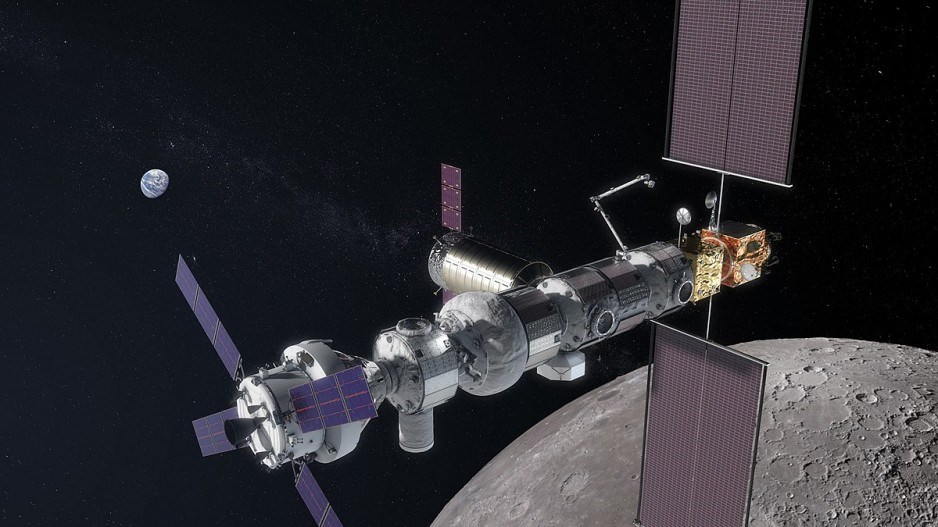Call it a $2.05 billion payload rocketing toward Canada’s space industry.
A funding commitment late last month from Ottawa spanning 24 years sees Canada securing a role in the Lunar Gateway, a global initiative led by NASA to build a space station orbiting the moon.
Canada is providing the Canadarm3, a robotic system from Vancouver-based MDA that will repair and maintain the station.
The West Coast aerospace firm was also behind the Canadarm and Canadarm2, which provided similar functions for NASA’s Space Shuttle program and the International Space Station (ISS), respectively.
MDA’s contributions are expected to be led by its team in Ontario, not B.C.
But included in the mix of funding from Ottawa is a $150 million technology development package, the Lunar Exploration Accelerator program, which could give West Coast companies the opportunity to get their wares into Lunar Gateway.
“You don’t have to be a space company either. You could be an IT company. You could have other types of digital technology expertise that may be applicable to what we’re going to be doing on Lunar Gateway. This is going to be huge,” said Jim Quick, CEO of the Aerospace Industries Association of Canada (AIAC).
MDA, meanwhile, estimates more than 500 Canadian companies could be involved with the development of the Canadarm3, creating 10,000 person-years of employment.
“It hints at a future in space for our careers,” said Malaki Vandas, a third-year mechanical engineering student at the University of Victoria (UVic) and team lead of UVic Rocketry, a student group that designs and builds competitive sounding rockets.
Vandas said it’s been challenging for new grads to land jobs in rocketry owing to the dearth of firms in Canada and strict rules imposed on U.S. firms over hiring foreign nationals to work on rockets (American regulations classify rockets as weapons).
But his organization has had success posting B.C. students to Rocket Lab in New Zealand, a private aerospace manufacturer that also launches small satellites into space.
“It’s one of the only opportunities for people who are non-Americans to have a career in space,” Vandas said, adding there are still some prospects in Europe and Asia.
The Canadian Space Agency (CSA) has also been cultivating talent for the local space industry.
Through the Canadian CubeSat Project, the CSA last year provided UVic, in collaboration with Simon Fraser University and the University of British Columbia, with a $200,000 grant to develop and build a mini-satellite the size of a bulky phone.
OrcaSat will be launched into orbit from the ISS in 2020 to conduct experiments.
“Our students are getting a big step ahead,” said Bryce Edwards, president of UVic Satellite Design.
“You kind of have to build up some scars to get this knowledge; you have to fail a lot, go back, redesign, learn what you did wrong. So it’s this sort of knowledge that’s not … developed in the classroom; it’s developed in the field on projects.”
Like Vandas, Edwards said the number of jobs in Canada for the space industry is limited.
But he believes parallel careers in the adjacent aerospace sector are still great for young space enthusiasts.
“Job opportunities in general on the West Coast for tech are really good. I think we’ll continue to see growth in that area,” Edwards said.
“But for [development of] space hardware, it’s not such an attractive place because most of the supply chains are out east. That’s just where it’s more attractive to set up shop for most players.”
Quick said that’s been changing recently.
In 2014, his organization launched AIAC Pacific in partnership with the B.C. government to develop the province’s aerospace and space industries.
Quick said over the past five years there have been improvements in research and development, jobs and the investment environment.
“I would argue that Western Canada has more than its fair share as it relates to space,” he said, pointing to MDA, Vancouver-based UrtheCast Corp. (TSX:UR) and Winnipeg’s Magellan Aerospace Corp. “All significant major players in our space community.”




